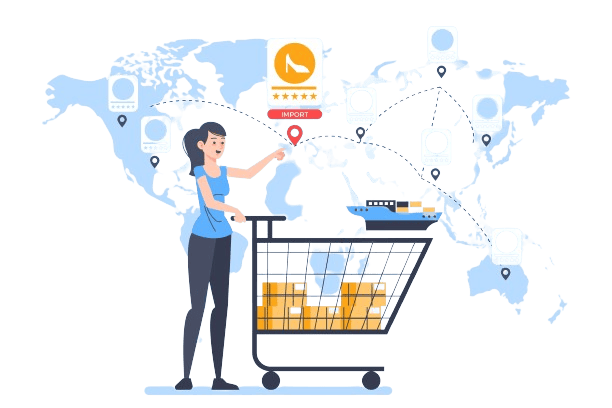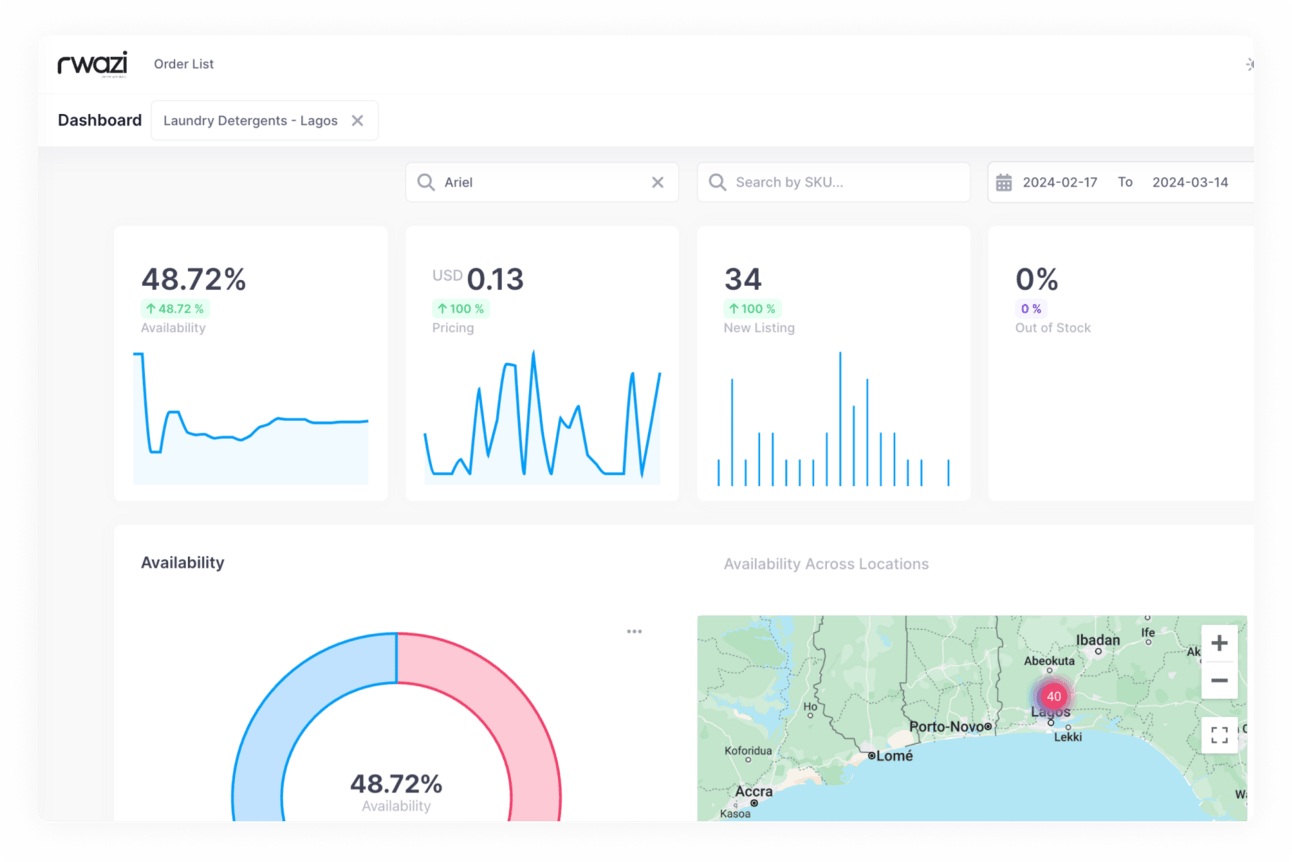
Our focus at Market Mosiac for this second quarter of 2024 is having our readers on board as contributors to continue serving you with even more diverse, richer cutting-edge market insights and global economic trends than ever. 📈
We are excited to invite you to journey with us as we collectively help multinational companies, consumer businesses, executives, investors, professionals, policymakers and analysts decide with data. In case you missed the announcement earlier, we are presently calling for contributors.
Back with this week's edition, we are spotlighting the booming "reverse logistics" industry cashing in on the $300 billion annual product returns. By sharing the latest data points and market indicators shaping this emerging sector, we will examine how major retailers are cracking down on returns policies and explore the rise of "recommerce" platforms unlocking value from unwanted goods.
Let's dive into these insights together!
— Insights Team, Rwazi
Our Edition this week:
DATA SPOTLIGHT
The booming reverse logistics opportunity

As retailers crack down on returns to avoid the all-too-common "it was broken when I got it" excuse, a $300 billion reverse logistics industry is emerging to capitalise on the rise in holiday season product returns, Rwazi has learnt and can analyse. So, here are the trends you should know:
Venture capital firms invested nearly $200 million in reverse logistics startups last year - over 2.5x the amount in 2021, signalling surging investor interest in this rapidly growing sector. This influx of funding is fueling the development of new technologies and business models to streamline the returns process.
Established players are also racing to stake a claim in the reverse logistics space. Uber launched a new feature enabling its drivers to pick up packages and bring them to returns centres. Meanwhile, logistics giant UPS, whose returns business has grown 25% since 2020, recently acquired the startup Happy Returns to bolster its reverse supply chain capabilities.
Key Insight: The explosive growth in online shopping has fueled a parallel boom in product returns - creating a lucrative new frontier for tech-enabled "reverse logistics" solutions to repair, resell, and recycle unwanted items. As retailers grapple with the financial burden of managing returns, innovative startups and logistics providers use tools and services to capture value from this vast and challenging landscape.
THE PULSE
Featured Chart: Asia Pacific has the fastest growth rate in reverse logistics at 52% market share

Reverse logistics market share by region (as of 2023) • Data analysis: Rwazi
SECTOR SCAN
The rise of "recommerce" platforms

To capture value from the multitude of returns, a new breed of "recommerce" platforms has emerged to resell, refurbish, and recycle unwanted products. Prime examples Rwazi found include:
ThredUp and Poshmark allow consumers to buy and sell secondhand apparel and accessories, giving a second life to gently used items.
Optoro and Liquidity Services help retailers efficiently process, resell, and recycle returned and excess inventory that would otherwise end up in landfills.
Key Insight: These recommerce models are unlocking new revenue streams from what would otherwise be waste, creating a more sustainable retail ecosystem. By repairing, refurbishing, and reselling returned goods, these platforms reduce environmental impact and make circular economy principles a reality.
OUR COMPETITIVE WATCH
Retailers rethink their returns policies.

As the cost of managing returns climbs, major retailers are implementing more stringent policies to cut down on abuse and fraud. Some notable moves:
Walmart, Target, and other big-box stores have slashed their return windows, with some now only allowing 60-90 days compared to the previous 90-120 days. This is an effort to curb serial returners who abuse generous policies.
Amazon has expanded its "return authorised" program, requiring customers to get approval before sending back certain items, like consumer electronics. This helps the e-commerce giant better control the flow of returns coming into its reverse supply chain.
Apparel retailers like Zara and H&M have started charging restocking fees of up to 30% on returns, aiming to disincentivise frivolous returns that eat into their profits. These fees make customers more deliberate about their purchases.
Key Insight: Retailers are getting more aggressive in policing returns as they grapple with the financial burden, ranging from processing costs to lost revenue on resold items. By tightening return windows and imposing fees, they hope to prompt consumers to be more cautious about making purchases they may want to return down the line.
WHAT’S HAPPENING AT RWAZI?
Rwazi’s acceptance into the Plug and Play Brand & Retail Batch unlocks new doors

We are thrilled to announce that our accelerator program has accepted Rwazi into the Plug and Play Brand & Retail Batch 21 program! Against a pool of 2,500 startups, Rwazi has been chosen as one of the 12 participants!
We are excited to leverage this platform to accelerate our growth and further cement Rwazi's position as a leader in the brand and retail intelligence space. Catch up on the details here.

Thank you for reading and joining us on Market Mosaic this week. We hope this edition provides valuable, actionable insights for deciding with data. 📊
You can read the more extended version of this newsletter edition with detailed insights here.
If you missed the insights in our previous editions, you can catch up on them here on our newsletter blog.
What topics would you like to see covered in our newsletter?
- Sustainability trends
- Geopolitical risks and their impact on markets
- Regulatory changes affecting specific industries
- Future-of-work trends
- Consumer psychology and decision-making
- Fintech, cryptocurrency, regulations, future of banking
- E-commerce trends, supply chain optimization
- Artificial intelligence, cybersecurity, blockchain
- Telemedicine, healthcare access, pharmaceutical trends
- Electric vehicles, autonomous vehicles, future of mobility

